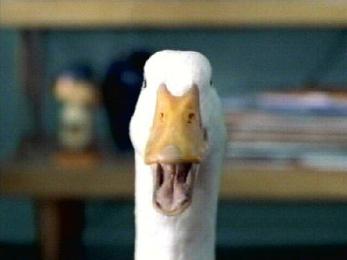Spoiler Alert: The following commentary contains absolutely NO shameful or shocking ethics scandals!
Every day, we open newspapers, (on iPads, Kindles, etc.) to read, principally, bad news. Cable channels assault us with every angle on all manner of fraud, corruption, deceit, bribery, and the old reliable, sex scandal.
But good news is out there.

The Ethisphere Institute is an international think-tank based in New York whose focus is on sharing the “best practices in business ethics, corporate social responsibility, anti-corruption and sustainability.” Its mission is “to help corporate executives guide their enterprises toward gaining market share and creating sustainable competitive advantage through better business practices and corporate citizenship.”
Every year, the Institute honors a list of The World’s Most Ethical Companies from a variety of business sectors; from aerospace and defense to transportation and logistics. The support demonstrates that ethics is more than words and codes, it’s about actions. Those groups honored not only foster ethical standards, “they exceed legal compliance minimums and shape future industry standards by introducing best practices today.
Of the 145 companies listed for 2012, 98 were founded and based in the United States. Among the U.S. companies listed: Adobe Systems, Rockwell Collins, Patagonia, Timberland, Ford Motor Company, Dun & Bradstreet, Intel, Symantec, Xerox, Colgate-Palmolive, Kimberly-Clark, eBay, Sempra Energy, Kellogg, International Paper, Hartford Financial Services, Parsons, University Hospitals, Deere & Company, Honeywell, Aflac, Blue Shield of California and Starbucks Coffee.
Since its foundation, 23 companies have made the list all six years since 2007. Among them: Aflac, American Express, Fluor, General Electric, Milliken & Company, Patagonia, Rabobank and Starbucks.
Ethisphere’s criteria, the website says, “consists of five core categories: Ethics and Compliance Program (25%); Reputation, Leadership and Innovation (20%); Governance (10%); Corporate Citizenship and Responsibility (25%); and Culture of Ethics (20%).
The Institute also compiles a list of Attorneys Who Matter as well as The 100 Most Influential People in Business Ethics. Among the:
Warren Bennis, professor, University of Southern California. Bennis is a top thought-leader on business leadership and spent 2011 promoting the value of corporate responsibility in senior positions.
Jed Rakoff, U.S. District Judge, Department of Justice. Judge Rakoff rejected a proposed settlement between the Securities and Exchange Commission and Citigroup because the settlement did not require Citigroup to admit or deny blame, therefore making it impossible for Rakoff to agree on the size of the settlement. This decision inspired a number of other judges to deny similar settlements between the SEC and other organizations.
Howard Schultz, CEO, Starbucks. Starbucks continued as a concerned global citizen in 2011, including launching one of Schultz’ personal projects, the INDIVISIBLE campaign which aims to help create jobs in the U.S.
Steve Kroft, Journalist, 60 Minutes. While the issue is not new for those that have been following it, the recent report by 60 Minutes to discuss alleged insider trading in Congress brought the issue to the public’s attention. Now, it’s likely that a bill — with disputable effect — will be enacted to help try and curb the practice.
Then there’s Aflac, a company that provides supplemental insurance for individuals and groups to help pay benefits your major medical insurance doesn’t cover.
Speaking of ethics, Daniel Amos, president and CEO wrote, “As the chief executive officer, I believe that the concept of transparency extends to me, as well as the balance of the organization. In November, I told Aflac’s board of directors that I will forgo certain elements of my compensation package related to an unexpected severance from the company. While I am not planning on leaving anytime soon, I have long felt that in the event of my departure I would not seek to implement a ‘golden parachute.’ I would simply retire. I also do not want shareholders thinking that if they wanted to replace me they would have to pay a price for that decision. As I have said many times, Aflac is a pay-for-performance company, and the CEO is no exception.
“I was taught that you have to be responsive to people, and as CEO of Aflac, that means employees, policyholders, sales associates and our shareholders. That’s why at Aflac, we set high standards for civility and ethics, and we pay for performance. In fact, every employee at Aflac, from the CEO to the chief financial officer to the call center operator, and every sales agent in our field force, is rewarded for performance.”
In talking about transparency and pay-for-performance, Amos sees all individuals as inherently important, and the well-being of each is a moral end in itself. From a standpoint of fairness to both shareholders and board members, he’s not asking for a “golden parachute” if and when he retires.
While companies struggle with self-interest, self-deception, self-protection and self-righteousness, Aflac and 144 others continue to demonstrate that ethics matters.
Comments










